Mid-Atlantic Chapter
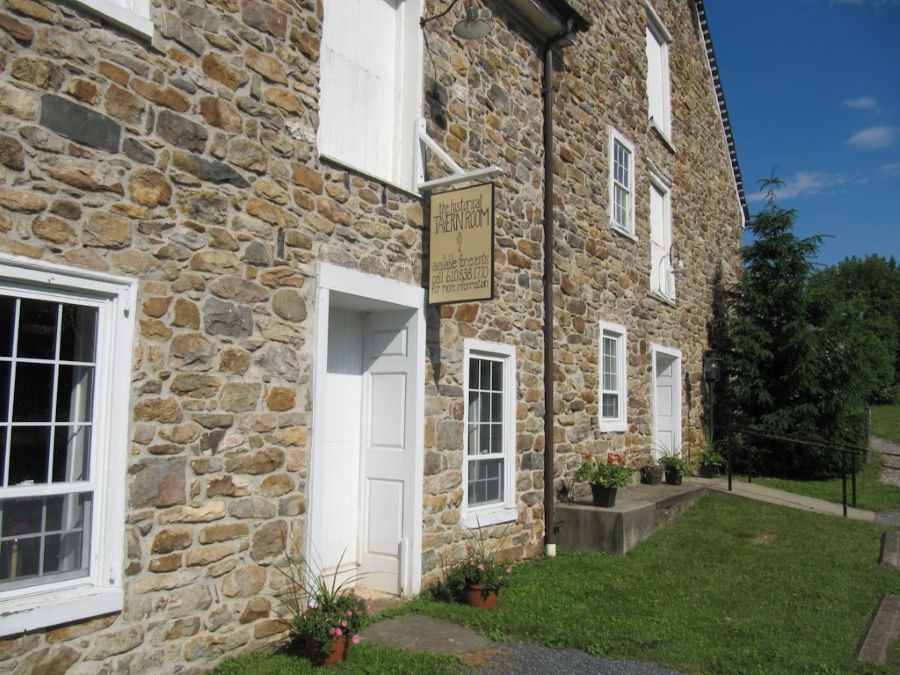
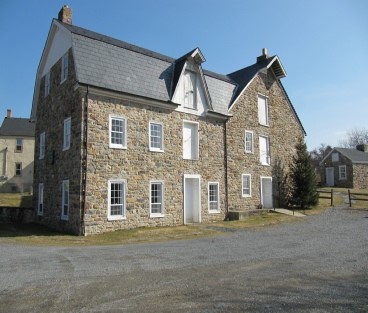 Heller-Wagner Grist Mill – Hellertown, PA, – was built circa 1760 by the Heller family, then sold to the Wagner family who operated the mill into the 1950s. Over time, the original 3-story building was enlarged and the water wheel replaced by water turbines that remain. The mill was restored in the late 1980s by local volunteers. The Borough of Hellertown owns the property which is maintained by the Hellertown Historical Society. The office in the miller’s house and museums in the mill and neighboring “barn” and are open to the public. The lower floor of the mill is available for rental for private functions. (March)
Heller-Wagner Grist Mill – Hellertown, PA, – was built circa 1760 by the Heller family, then sold to the Wagner family who operated the mill into the 1950s. Over time, the original 3-story building was enlarged and the water wheel replaced by water turbines that remain. The mill was restored in the late 1980s by local volunteers. The Borough of Hellertown owns the property which is maintained by the Hellertown Historical Society. The office in the miller’s house and museums in the mill and neighboring “barn” and are open to the public. The lower floor of the mill is available for rental for private functions. (March)
Links to our other Faithful Sponsors
 Daniel Campbell, AIA is a multi-state registered restoration architect with 30+ years of experience in preservation, restoration and renovation of 18th, 19th and 20th century buildings of all types, and design of new buildings in traditional architectural styles. Dan is based in historic Chester County in eastern PA with easy access to the Mid-Atlantic and Northeast regions. "Your old mill's best friend!" (February)
Daniel Campbell, AIA is a multi-state registered restoration architect with 30+ years of experience in preservation, restoration and renovation of 18th, 19th and 20th century buildings of all types, and design of new buildings in traditional architectural styles. Dan is based in historic Chester County in eastern PA with easy access to the Mid-Atlantic and Northeast regions. "Your old mill's best friend!" (February)
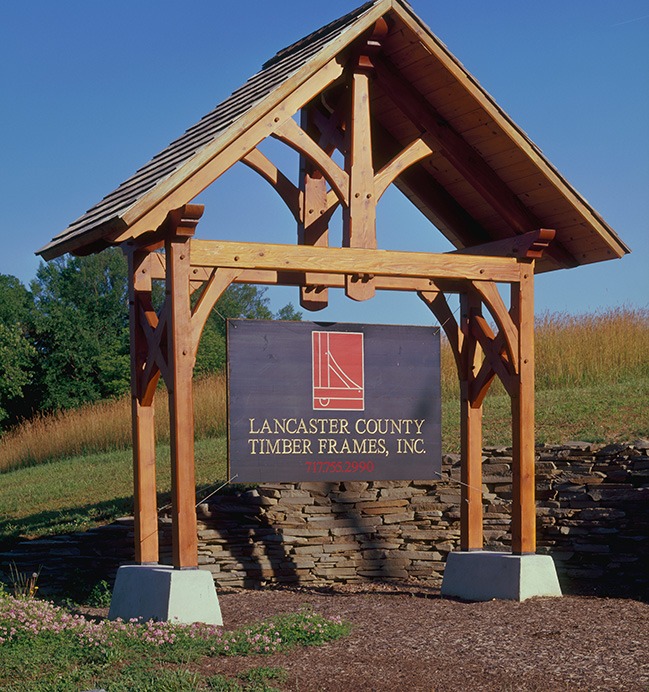 Lancaster County Timber Frames, Inc – York PA – is a small company devoted to the preservation and elevation of traditional timber framing craftsmanship. Timber frames are structural sculptures that lift the spirit and soothe the soul. Details, perfection, and integrity drive our staff of eighteen as they design, engineer, carve, and raise each structure we produce. Projects range from Nantucket to New Mexico, commercial to residential, historic barns and bridges to pool houses and churches. (January)
Lancaster County Timber Frames, Inc – York PA – is a small company devoted to the preservation and elevation of traditional timber framing craftsmanship. Timber frames are structural sculptures that lift the spirit and soothe the soul. Details, perfection, and integrity drive our staff of eighteen as they design, engineer, carve, and raise each structure we produce. Projects range from Nantucket to New Mexico, commercial to residential, historic barns and bridges to pool houses and churches. (January)
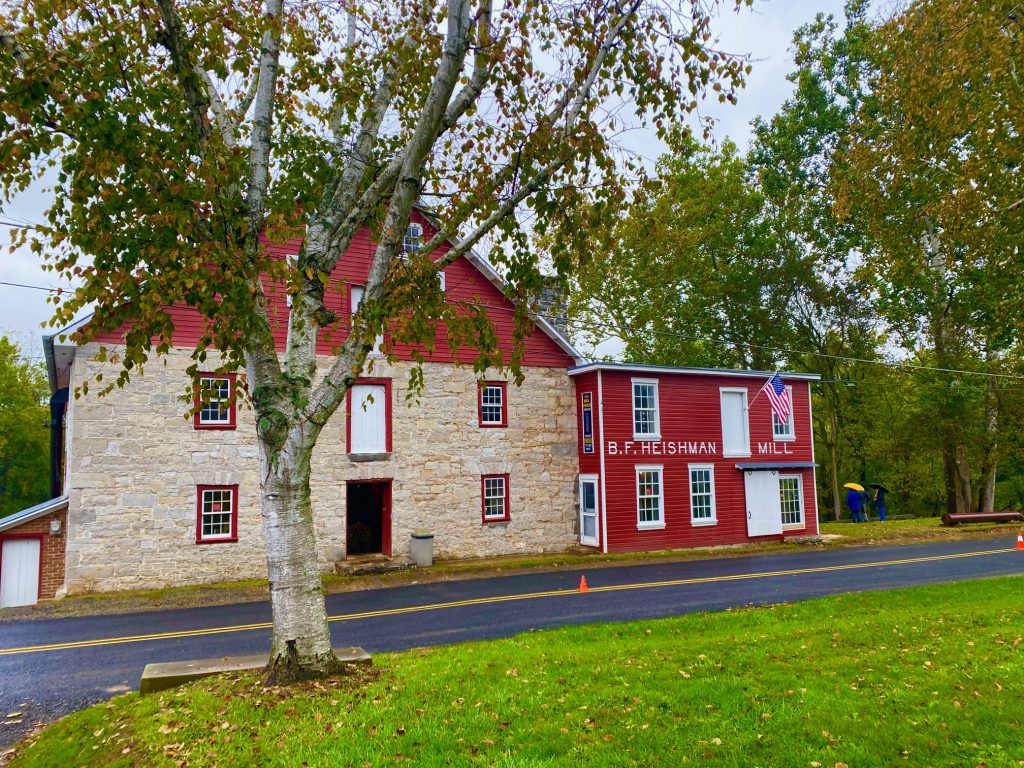 Heishman Mill – Carlisle, PA, The Diller-Heishman Mill was constructed along the Conodoquinet Creek by Francis Diller in the early 1800s and modernized in 1920 by Benjamin F. Heishman. Ladies Choice Flour was the signature product. The mill closed in 1957. The German itinerant woodcarver, Wilhelm Schimmel (1817-1890), used the mill as his home base for carving. The Friends of Historic Heishman’s Mill oversee the site. (December)
Heishman Mill – Carlisle, PA, The Diller-Heishman Mill was constructed along the Conodoquinet Creek by Francis Diller in the early 1800s and modernized in 1920 by Benjamin F. Heishman. Ladies Choice Flour was the signature product. The mill closed in 1957. The German itinerant woodcarver, Wilhelm Schimmel (1817-1890), used the mill as his home base for carving. The Friends of Historic Heishman’s Mill oversee the site. (December)
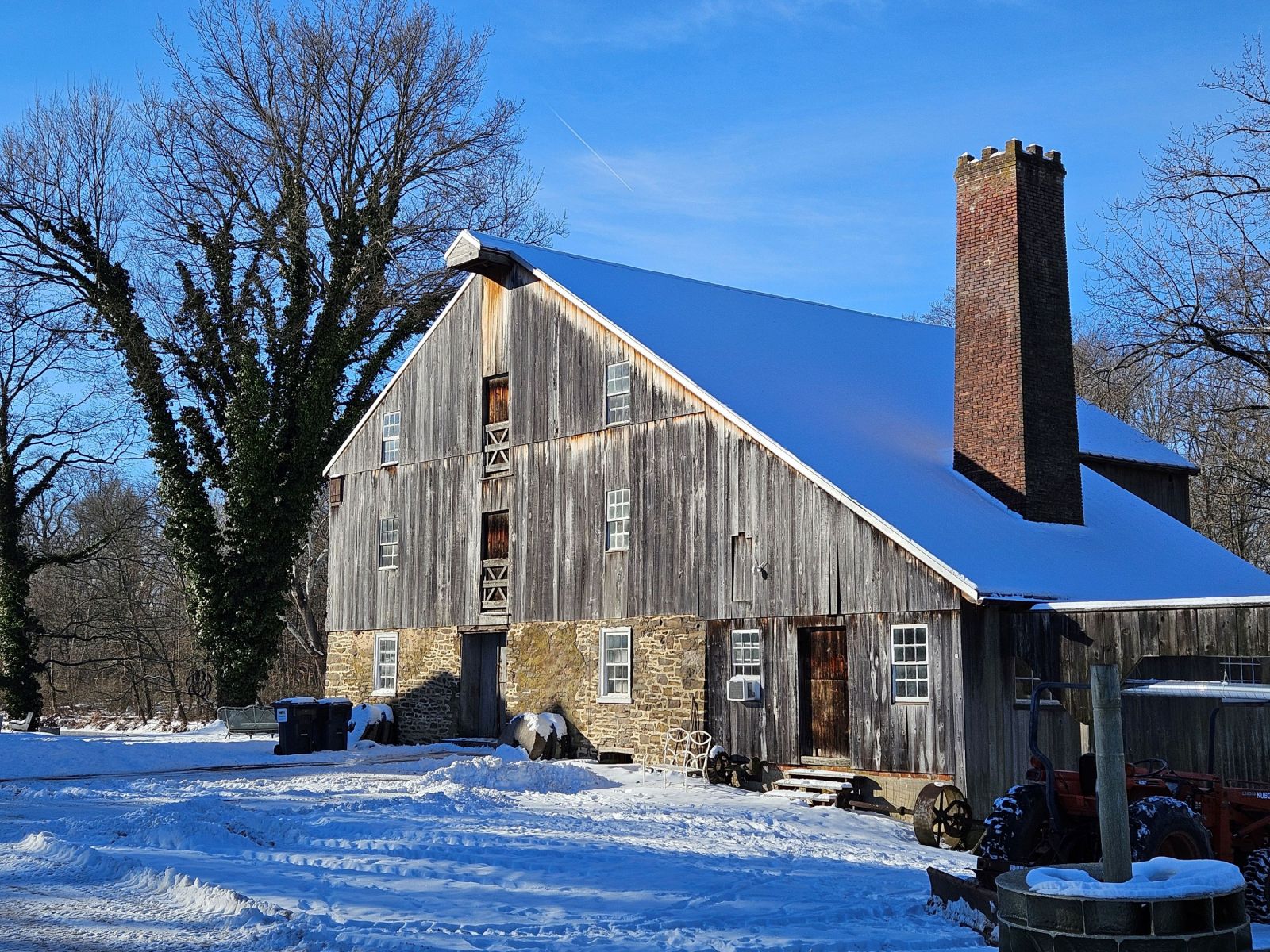 Castle Valley Mill – Doylestown, PA – In 1947 Henry Fischer purchased and began restoration of the mill on Nishaminy Creek that was originally built in 1798. Third and fourth generation Fischer family members continue this process. Period stone milling equipment was salvaged from mills across PA to produce the finest stone ground flours and meals on antique buhr mills. Stone grinding keeps the grains, vitamins, and minerals intact, producing a healthy, quality product that is full of flavor. Order online or visit the Mill store on Thursdays from 8 to 5. (November)
Castle Valley Mill – Doylestown, PA – In 1947 Henry Fischer purchased and began restoration of the mill on Nishaminy Creek that was originally built in 1798. Third and fourth generation Fischer family members continue this process. Period stone milling equipment was salvaged from mills across PA to produce the finest stone ground flours and meals on antique buhr mills. Stone grinding keeps the grains, vitamins, and minerals intact, producing a healthy, quality product that is full of flavor. Order online or visit the Mill store on Thursdays from 8 to 5. (November)
 Penns Creek Pottery – Mifflinburg PA – Sampsel’s Mill was built in 1818 and ran on water-power until it closed in 1951 and fell into disrepair. Bill Lynch has been making award-winning pottery in this ‘creek-place’ since he and Sharon bought the old mill property in 1978. In 1989 the mill was restored and adapted for pottery making and sales. (October)
Penns Creek Pottery – Mifflinburg PA – Sampsel’s Mill was built in 1818 and ran on water-power until it closed in 1951 and fell into disrepair. Bill Lynch has been making award-winning pottery in this ‘creek-place’ since he and Sharon bought the old mill property in 1978. In 1989 the mill was restored and adapted for pottery making and sales. (October)
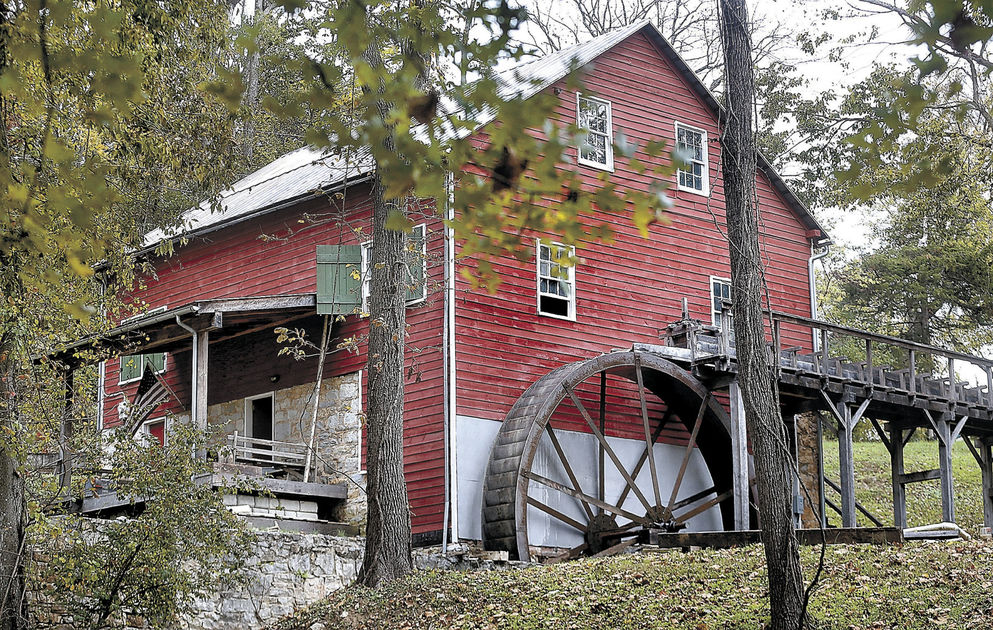 Locke’s Mill – Berryville, VA, is a colonial-era grist mill located near the confluence of the Shenandoah and Potomac Rivers. It ground grains from the Shenandoah and Ohio Valleys for sale in the large coastal cities. The present building dates from 1876 and ran two mill-wheels. The mill was certified organic in 2017 and today provides essential services to the growing local organic food movement in Northern Virginia. (September)
Locke’s Mill – Berryville, VA, is a colonial-era grist mill located near the confluence of the Shenandoah and Potomac Rivers. It ground grains from the Shenandoah and Ohio Valleys for sale in the large coastal cities. The present building dates from 1876 and ran two mill-wheels. The mill was certified organic in 2017 and today provides essential services to the growing local organic food movement in Northern Virginia. (September)
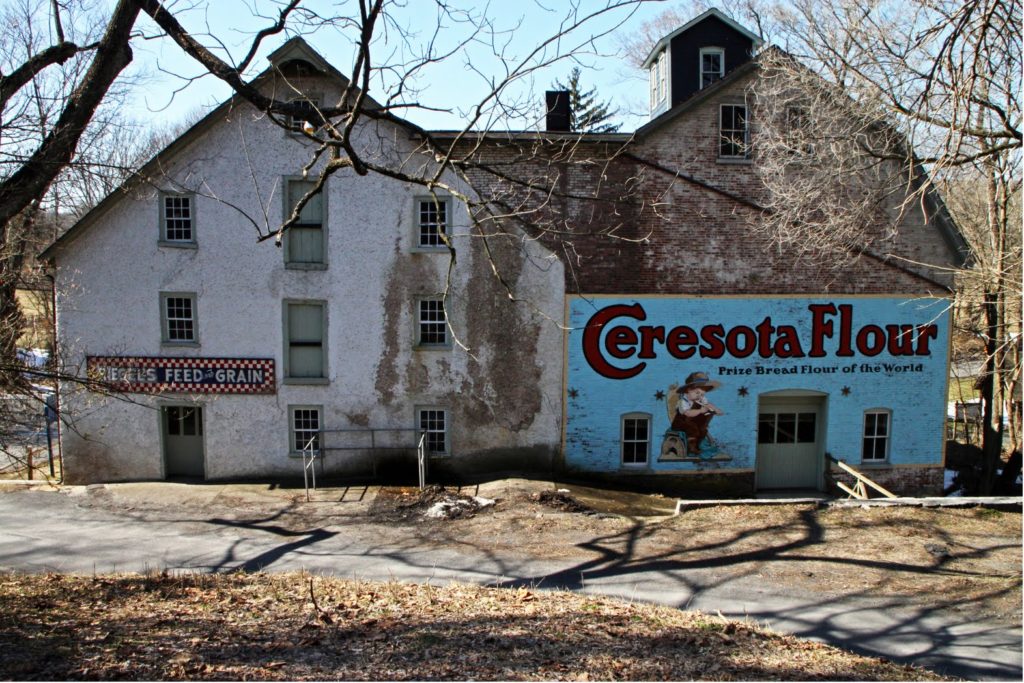 Durham Grist Mill – Durham Township, Bucks County, PA was erected on the foundation walls of the original Durham Iron Furnace (1727-1791). From 1820 to 1967, the mill used the same water power that previously operated the furnace forges and bellows to grind grains into flour and other products like livestock feed. The Mill warehouse has housed the nation’s second oldest post office since 1912. (August)
Durham Grist Mill – Durham Township, Bucks County, PA was erected on the foundation walls of the original Durham Iron Furnace (1727-1791). From 1820 to 1967, the mill used the same water power that previously operated the furnace forges and bellows to grind grains into flour and other products like livestock feed. The Mill warehouse has housed the nation’s second oldest post office since 1912. (August)
 Shank's Mill – Waynesboro, PA was built in 1857 as Springdale Mills and passed through three other families before Wilmer and Edna Shank purchased it in 1935. Over time, the Shanks owned and operated five different grist mills. Their son Odell operated this mill until his death in 1973. His wife Yula began the process of preserving Shank’s Mill as an historic site. Her son Adrian and his family continue to do so. (July)
Shank's Mill – Waynesboro, PA was built in 1857 as Springdale Mills and passed through three other families before Wilmer and Edna Shank purchased it in 1935. Over time, the Shanks owned and operated five different grist mills. Their son Odell operated this mill until his death in 1973. His wife Yula began the process of preserving Shank’s Mill as an historic site. Her son Adrian and his family continue to do so. (July)
 Breneman-Turner Mill – Harrisonburg, VA, This four-story stone and brick mill, which survived Sheridan's burning, is the only pre-Civil War mill with all the grist mill equipment still in place in Rockingham County. Visitors see corn ground on French burr stones from the early 1800s. The mill is open one Saturday a month, May through October, for tours and corn grinding. (June)
Breneman-Turner Mill – Harrisonburg, VA, This four-story stone and brick mill, which survived Sheridan's burning, is the only pre-Civil War mill with all the grist mill equipment still in place in Rockingham County. Visitors see corn ground on French burr stones from the early 1800s. The mill is open one Saturday a month, May through October, for tours and corn grinding. (June)
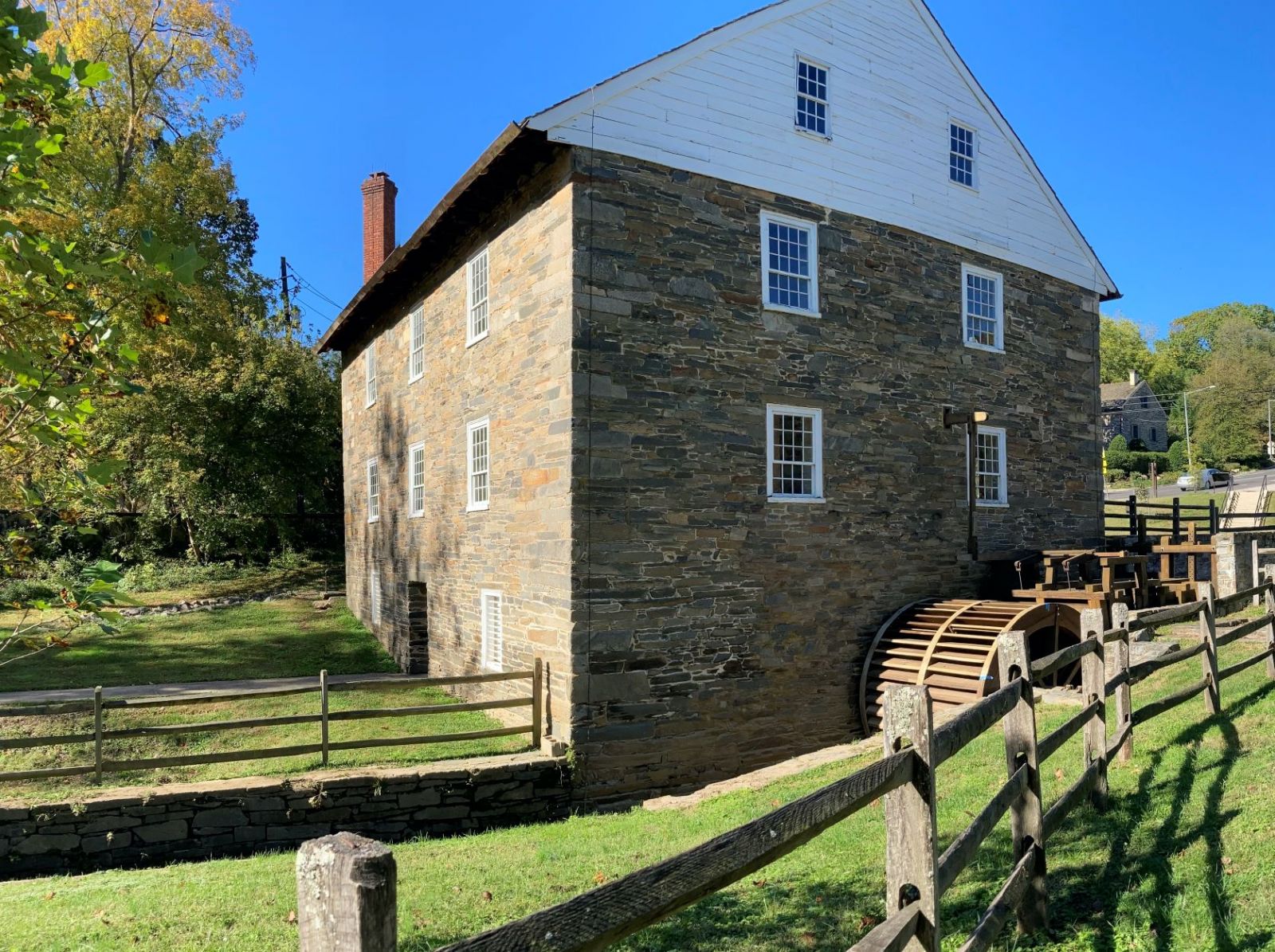 Peirce Mill – Washington, DC, built in 1829, was one of eight mills along Rock Creek. In 1892, the property became part of new national park, though Peirce Mill continued operations until 1897, when mill machinery failed. In 1905, the old stone building was converted into a teahouse for park visitors. In the 1930s, Peirce Mill was restored as an early project of the Works Progress Administration and operated off and on, until the main shaft broke in 1993. The Friends of Peirce Mill was established in 1997 to help the National Park Service restore the mill and grinding operations resumed in 2011. Today, Peirce Mill is Washington's last working gristmill and a popular destination in Rock Creek Park. (May)
Peirce Mill – Washington, DC, built in 1829, was one of eight mills along Rock Creek. In 1892, the property became part of new national park, though Peirce Mill continued operations until 1897, when mill machinery failed. In 1905, the old stone building was converted into a teahouse for park visitors. In the 1930s, Peirce Mill was restored as an early project of the Works Progress Administration and operated off and on, until the main shaft broke in 1993. The Friends of Peirce Mill was established in 1997 to help the National Park Service restore the mill and grinding operations resumed in 2011. Today, Peirce Mill is Washington's last working gristmill and a popular destination in Rock Creek Park. (May)
 Wallace Cross Mill – Felton PA, in operation from the 1820s to 1980s, is a restored water-powered grist mill open for public tours Sundays from mid-June through October. Special events the second Sunday of the month include Historic Mills Day in June, Geology Day in July, Harvest Day in September, and Cider Day in October. Volunteers operate the restored Fitz water wheel and grinding equipment. The site is managed by York County Parks. (April)
Wallace Cross Mill – Felton PA, in operation from the 1820s to 1980s, is a restored water-powered grist mill open for public tours Sundays from mid-June through October. Special events the second Sunday of the month include Historic Mills Day in June, Geology Day in July, Harvest Day in September, and Cider Day in October. Volunteers operate the restored Fitz water wheel and grinding equipment. The site is managed by York County Parks. (April)
 Generous support from our organizational members makes the SPOOM Mid-Atlantic website possible. To become a sponsor, complete and submit this pdf form along with a minimum payment of $50 per year or join online through our Membership Page.
Generous support from our organizational members makes the SPOOM Mid-Atlantic website possible. To become a sponsor, complete and submit this pdf form along with a minimum payment of $50 per year or join online through our Membership Page.